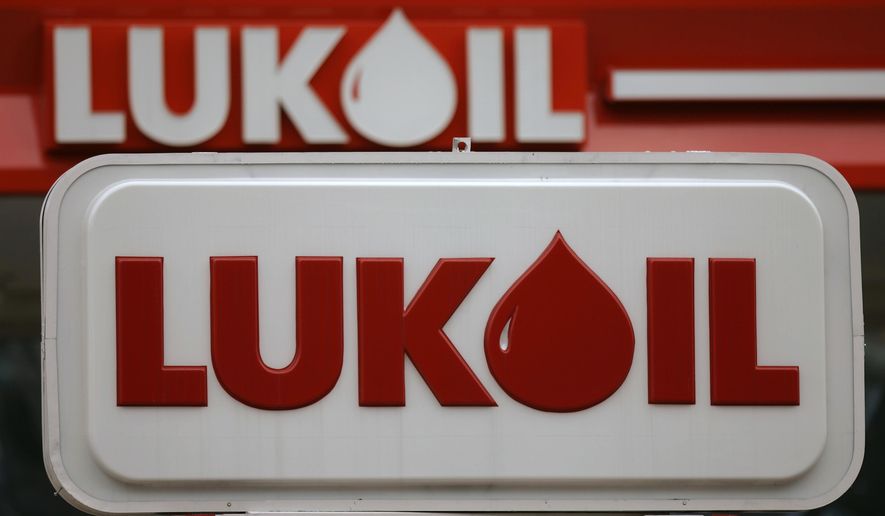CARACAS, Venezuela (AP) - A trust linked to Venezuela’s state oil company PDVSA has filed a lawsuit against major international energy trading firms for their alleged role funneling bribes to corrupt company officials in exchange for rigged oil purchase contracts.
The civil complaint was unsealed Thursday by a federal judge in Miami and alleges the ongoing scheme cheated the socialist-run company of billions in lost revenue since 2004.
The lawsuit comes as the U.S. expands a criminal investigation into corruption at PDVSA, and the Trump administration threatens crippling oil sanctions on the country sitting atop the world’s largest crude reserves.
David Boies, the powerful New York attorney representing PDVSA who is also involved in two other politically charged cases straining relations between the U.S. and Venezuela, said the lawsuit was prompted by the Venezuelan government’s determination to show it takes corruption seriously.
“This is an action that Venezuela has taken to re-establish itself as a country where the rule of law applies, where corruption isn’t going to be tolerated and where people who violate the public trust will be held accountable,” Boies told The Associated Press. “It’s a long road, but every long road begins with the first few steps.”
Boies said the 60-page complaint reads like a John Grisham novel, reflecting the lawless behavior by PDVSA officials and international oil companies over more than a decade. Switzerland-based Glencore and Russia’s Lukoil are named as among more than 40 defendants including rogue traders, multinational energy firms, shell companies, mid-level PDVSA officials and a Nicaraguan-owned bank in Florida
The scheme to fix prices, rig bids and eliminate competition, as well as steal highly-confidential information by cloning the company’s servers, was allegedly carried out by two former PDVSA traders, Francisco Morillo and Leonardo Baquero.
In 2004, the two Venezuelan men established in Panama a consulting firm, Helsinge Inc., which also had offices in Miami, Geneva and the British channel island of Jersey. The company was the conduit by which some of PDVSA’s biggest clients and supplier allegedly obtained insider information on PDVSA’s tenders for oil exports as well as the purchase of the light crude with which Venezuela refines its heavy crude.
Among other illicit activities, a “clone server” was allegedly installed at Helsinge’s Miami offices by a PDVSA IT administrator nicknamed “the Nerd” to give the middlemen and their clients real-time access to information on competing bids and future tenders.
In exchange for the sneak peak and other unfair advantages, Helsinge - which was not authorized to transact directly with PDVSA - allegedly charged hefty monthly retainers from what the lawsuit describes as “Oil Company Co-Conspirators” plus added compensation of up to $0.22 per barrel of oil product bought or sold. Some of that money was paid out from Panamanian shell companies in the form of bribes to four PDVSA managers, one of whom, Ysmael Serrano, currently heads the company’s commercial and supply department, according to the lawsuit.
An email sent through the website of little-known Helsinge, which does not list a phone number or address for the company, went unanswered.
Glencore declined to comment and Lukoil did not immediately respond to the allegations. There is no evidence the companies encouraged the corrupt dealings, except for communications between Helsinge and traders for the oil companies discussing wire transfers and ways to alter the terms of future tenders before they were released to the general market.
Lukoil has been one of Venezuela’s most-steadfast creditors, helping President Nicolas Maduro’s cash-strapped government stay afloat as a number of American and other international oil companies have fled Venezuela over unpaid bills.
Neither PDVSA nor the Venezuelan government has commented.
Last month, prosecutors in Houston unsealed charges against five former senior officials, including a deputy oil minister, for bribe-taking. The indictment alleges former PDVSA President Rafael Ramirez was one of the recipients of the illegal payments.
Ramirez left the U.S. for an undisclosed location after resigning as ambassador to the United Nations in December and has since been targeted by a separate corruption probe in Venezuela that has already led to the arrest of dozens of employees, including his successor. Ramirez was not named in the civil lawsuit.
At least $11 billion is believed to have gone missing from PDVSA the past decade, according to a 2016 report by the opposition-led National Assembly.
The evidence in the lawsuit was partly collected by a former Scotland Yard investigator hired by the trust who had access to PDVSA’s servers in Caracas last year. It’s also based on damaging emails, banking records and instant messages provided by Morillo’s estranged wife - some of which are included in the complaint - detailing how the alleged conspiracy was carried out.
The trust is represented by attorneys from Boies’ firm, which is also defending Venezuelan First Lady Cilia Flores’ nephews in a federal drug-trafficking case and has been working with partners in Caracas to secure the release of Joshua Holt, a Utah man jailed for more than 20 months on weapons’ charges.
___
AP Writer Scott Smith contributed to this report.




Please read our comment policy before commenting.